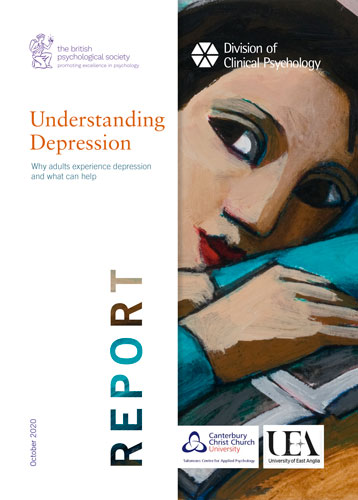depression's causes
The reason is that proper causal questions are always 'situated'. Their situation constrains what shall be counted a good answer to them. And what counts as an apt situation is not itself something explicable independently of the interests and values of the questioners. And the thing is, just asking 'what causes depression?' utterly in the abstract, as I just did above, is to ask the question without any situation at all. I would like to say that, so far, it's only really the bare outline of a question, one that still needs to be given a determinate context of use before anyone could meaningfully set about answering it - perhaps before anything much can even be meant by it.
Here's a non-causal example of what I mean by 'situation'. I take it from the Preface to the Scholium of Newton's 'Principia'. A chap's walking along a ship. And now for the seemingly innocent question: How fast is he moving? Well, he's walking at 4 miles per hour from stern to hull. But then, consider, the ship is going at 10 miles per hour across the sea in the opposite direction as the man is walking. So relative to the sea, the chap's going at 6 miles per hour. Ah, but the water and the planet of which the sea is a sea are moving through space, relative to the sun, at 10 gazillion miles per hour.... So... etc etc. Newton thought there was some 'absolute' velocity that the chap had ('through absolute space' as it were), but at least since Einstein we've clocked that such talk of 'absolutes' is meaningless. We always need a frame of reference - i.e. a situation - for our questions before they even enjoy a sense. Asking 'how fast is the chap moving?' without specifying a frame is not yet to ask anything. And so too, I suggest, is asking 'what causes depression?' Consider the following 8 perspectives:- Perhaps in a social utopia, one in which everyone feels valued by society as a whole, in which everyone has the opportunity to take up deeply meaningful labour which utterly satisfies them, in which everyone has the opportunity to make deep socially cohesive ties, there is no or very little depression. Does this mean that we should count social factors as the real cause of most depression in our non-utopian society?
- Well, now we notice that, in our society, some people with shitty or no jobs, and some loners, are in fact not particularly unhappy, and certainly not clinically depressed. Does this mean that it's not the miserable social and economic situation that makes the others depressed? Perhaps, someone now suggests, it's just the way that some people interpret or cope with their admittedly non-ideal situations that makes for depression. Does this mean that the real cause of depression is psychological and not social?
- But now the socially-minded questioner comes back in. She asks: well, where do these interpretations and coping strategies come from in the first place? Might it not be that the reason why some people have dismal ways of looking at their situations is that they were raised in dismal conditions, that they didn't have the opportunity to internalise loving self-relations and so form such self-esteem as can carry one through a difficult time? So perhaps the real cause is social after all - or at the least, familial?
- But then someone else asks: why are you setting utopia as the apt situational context against which these questions are to be raised? Why not instead deploy the fairly tough situation that many serfs suffered over the last thousand years as the relevant situation? If you can't cope with that without getting depressed - well that's on you, not on society! - or so they say.
- Or, imagine now that we find that some people who basically have the worst possible jobs, and extremely dismal social opportunities, are as blissful as a Buddha. How do they manage this? Well, perhaps they have some rather unusual genes. Or perhaps they had incredible parents that gave them an invincible self-belief. Or perhaps they really are Buddhas. Shall we now say that the real cause of all depression is not having those genes? Or not having parents like that? Or not being enlightened?
- Someone else joins the discussion. It turns out he's interested in what the 'material' rather than 'efficient' causes of depression are. Perhaps he particularly notices the slump, the downward gaze, the loss of energy, the low mood, the constant fluttering anxiety, etc, and he gets interested in what in the brain and body constitutes the 'flesh' (as it were) of the depressive reaction. He tells us a story about the gut, the autonomic nervous system, certain neurotransmitters, etc. These, he says, are the 'true causes of depression'.
- And then a psychoanalyst comes along and notices how many of her depressed patients haven't yet developed certain ego strengths. They tend to capitulate. They don't know how to stand up for themselves. They don't really have a sense of what that would even mean. They lack self-possession. In short they have a 'depressive personality'. But then the question arises: what degree of ego strength shall be considered normal?
- Or an evolutionary psychologist comes along - perhaps someone who's been reading about Jordan Peterson's blessed lobsters - and invites us to look at why such submissive traits were ever selected for. Here's the real cause, she says - it's in the natural selection of behaviours apt to promote the survival of the less powerful in dominance hierarchies.
Now here's the thing. One very often finds that, looking at the above panoply of causes, broad-minded psychologists tell us that 'well, there are clearly lots of different causes of depression. Our model should therefore include all of them'. (The 'biopsychosocial model' rather takes off from there.) But - and here's my main claim - this is potentially just a real muddle. At face value it's almost as wrongheaded as someone suggesting that 'there are actually lots of different velocities of the chap on the boat, and our answer should contain them all'. In other words it makes a logical mistake. It confuses the fact that i) sometimes a causal question with a particular situation can receive more than one answer (Why is the floor wet? Danny spilt his water bottle; a pipe leaked; Sandra was bleeding the radiator) with the fact that ii) in different situations different answers will count as apt responses to the same question. (Here, by 'same question', I just mean: the same chain of words with a '?' on the end.)
Note that I'm not, here, spilling an excessive amount of ink to make a point about (say) the difference between 'proximal' and 'distal' causes, or nomothetic vs idiographic explanations. The point I'm making instead has everything to do with what is the implicit or explicit 'situation' of the questioner's question. This situation, and not simply the facts, determines what shall count as apt answers to the causal question.
I want now to comment on the fact that people can differ a lot on what they consider an apt amount of ego strength in others. Those on the political right sometimes think that people can reasonably be expected to have more strength, and be held more accountable for their travails, than do those on the left. Someone on the right will think: 'lack of self-possession' where someone on the left thinks: 'lack of social support'; someone on the left bristles when someone on the right talks about a 'problematic lack of resilience'. Here I note that there's no straightforward factual answer as to which of these viewpoints is correct. They presuppose different 'situations', situations partly defined by different values. I don't mean that that's the end of the discussion between the pundits of the social and the individual causes of psychiatric difficulties, since there are further psychopolitical discussions to have at this point. (Someone on the right might convince someone on the left that his perspective was utterly naive, that he was holding double standards regarding the accountability and moral motivations of different groups of people, etc. Or perhaps someone on the left convinces someone on the right that she's been hardening her heart in a way that distorts her capacity to see the truth, or has been projecting her guilt or fragility into others. Welcome to the human conversation!)
To end, a little comment on the BPS depression report. I think it does an excellent job of showing us what becomes visible as the causes of depression when what we're looking through is what we might call the window on the left. (It states, without giving evidence - and so presumably what we have here is more a moral than a scientific perspective - that depression is never a moral matter, i.e. never involves accountability or choice. It focuses heavily on oppression, bullying, abuse, stresses of parenting, austerity, social disadvantage, gender, migration, marginalisation, prejudice, discrimination, even climate change.) But what in my view it doesn't do is sufficiently own that it's looking through the left window, and doesn't acknowledge that if we look through other windows, and so differently situate our causal questions, then a rather different set of causes become visible. And what really strikes me about this report from the Clinical Psychology division of the BPS is how it focuses rather more on the social than on the truly psychological. Again, I've nothing against looking through the left window, but it's a peculiar situation we're in when the impetus to do that rather disappears the profession's defining object of interest. (The only real place where the purely psychological gets a look in is in a section on 'schemas', and even here the relationship between schemas and childhood experiences are what is highlighted.) As a clinical psychologist working in psychotherapy - i.e. when I've that hat on from my hat collection - what I'm principally interested in are the workings of the psyche. I'm interested in how people unconsciously demoralise themselves, void hope before it gets a chance, close over to love before it can warm their hearts, sap the wind from their own sails before it could blow their ship into a conflictual course with close others, take their own minds apart in desperation at the pain that will be felt if they don't, even as adults keep flogging the dead horse of a hopeless parental relationship long after others can see that the parent never was up to the task of parenting, are stuck in unwitting and semi-witting cycles of miserableness which at least bring fate under their own control, have bought for whatever reason into depressogenic beliefs about their worthlessness and unlovability, and so on and on. I'm interested in how much of this happens in the grey zone between what utterly exogenously happens to one and what one culpably does. I'm interested in helping people recover their full agency and so take on more responsibility, or adapt (e.g. in grieving) to that over which they've no choice, or for the first time grow the parts of themselves that got stuck in childhood. That none of this was visible in the report tells us, I suggest, a fair bit about what today it means to be a psychologist, at least as the BPS sees it.




Comments
Post a Comment
Comment here!